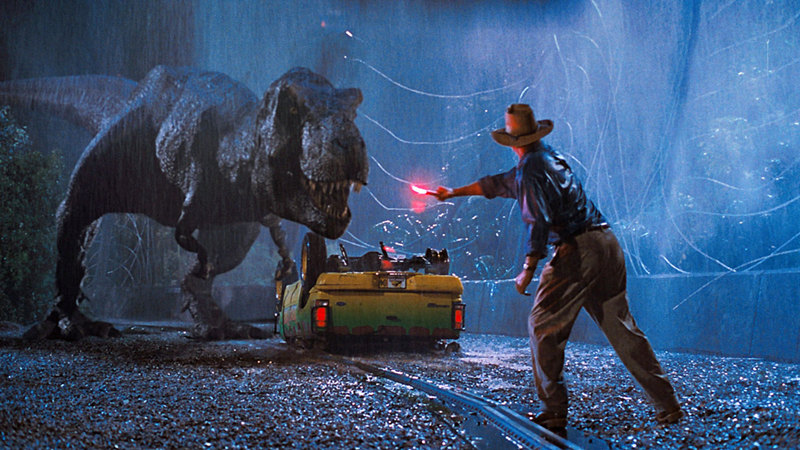Beneath the sex and titillation, “The Houseboy” is about one thing: a young man trying to find one person to treat him as an equal. Ricky (Nick May) is the third leg of Simon and DJ’s (Tom Merlino, Brian Patacca) relationship. When they go away for Christmas, Ricky is left in the apartment to care for fish, kittens and gerbils. The problem, though, is that only Simon truly cares for Ricky; to DJ, he is a toy, as Ricky overhears prior to the trip. This sends Ricky on a spiral of men, drugs and self pity, desperate for someone to pay attention to him in the way Simon does.
There isn’t a problem with the concept; in fact, polyamorous relationships and the subject of houseboy’s is something lacking in current gay cinema. It’s an issue with the execution. Director/Writer/Editor Spencer Schilly has an eye for charismatic young men and a fun behind the scenes atmosphere, but can’t seem to get underneath Ricky’s skin in any meaningful way. We understand the young man has problems with his mother and sister based on his sexuality, that he ran away from home and is used to trading his body to get things…or, even worse, to get people to like him.
Instead, Schilly focuses on the numerous partners who use Rickey through a week during Christmas. The orgy of bodies having sex, the random hookups, the HIV+ man…these people steal the thunder from Ricky. And for what? The director doesn’t have the courage to show full frontal nudity as a movie about sex would seem to demand or to delve deeply into the underlying psychology of any character. No, there is one shot of a penis and a handful of bare ass shots. Otherwise, he films each scene with an eye toward a mainstream distribution deal. Which “The Houseboy” would never have gotten.
The more compelling story is Ricky’s inner turmoil. He tells several visitors he plans on killing himself. Until a pivotal moment near the end of the film, we’re never sure if it’s a bluff to get attention or the truth. What led him to this place? Is it just his mother and sister wanting him to change? DJ’s attitude certainly has something to do with it, though committing suicide seems a bit overkill, to be honest. However, I will say, overhearing part of a conversation about wanting a new toy, followed by the assertion Ricky isn’t a toy is grounds for severe mental anguish. In that sense, there is a justification for the brazen attitude toward sex.
All that being said, the frequency with which the houseboy talks about suicide without having any real game plan feeds into the theory he is merely looking for someone to pay attention to him. That is the emotional hook of the movie, one the narrative tries to hammer home yet somehow fails to hit on the head. You would think, with scene after scene featuring a new guy for all intent and purpose using and leaving Ricky, the audience-not to mention the character-would get the point. I could even forgive Ricky needing two or three “lessons” to fully “get it.”
But once Blake (Blake Young-Fountain) enters the picture and turns down Ricky’s advances, it has to click. Yet nothing does for another half hour. In essence, he comes across as too naïve for his own good, not to mention petulant and self involved. None of this helps the character, however, leaving him a cold personality we’re supposed to identify with.
The most frustrating aspect of the story is Blake, a charming black gay youth with two mothers (yes, “The Houseboy” is a progressive film…). Schilly doesn’t allow enough time within the confines of 81 minutes to even begin developing a relationship between the two, only scattered scenes of them together. He seems to get it right with the end of the film, a touching montage which brings everything together. Too late, but it all comes together.
“The Houseboy” doesn’t use any particularly well known actors and, with all due respect, a good chunk of the random boys are bad actors. They’re all one note ciphers with no prerogative besides being pretty faces. It’s not entirely their fault; the script doesn’t give them anything of importance to do. In fact, only May and Young-Fountain receive much attention from the screenplay. There is a distinct lack of development for anyone else. Perhaps Schilly planned it this way to bring Ricky and Blake to the forefront with better characterization. The only “trick” with any depth is Peter Bloch’s Whip Cream Man. Bloch brings forward a certain warmth and concern none of the others manage. He also turns out to be the most respectful person in the film; Ricky simply can’t appreciate it.
Aside from the acting by its lead, “The Houseboy” has at least one other aspect in its favor. It never treats its gay characters as “gay.” Outside of one conversation with his sister, the sexuality of the characters is never the bone of contention. It is a relief, then, when Schilly wisely stays away from making it a major point. Simply put, in the world these people live in, who they sleep with isn’t an issue. Ricky isn’t trying to kill himself because he is gay (a standard, old school rationale from a time when gay characters had to either die or be miserable); rather it is because he can’t find anyone to take him seriously. It is more of a lateral movement than any real progression in the evolution in the genre to be sure.
VIDEO:
Ugh. While not horrible, the transfer we’re given doesn’t look good at all. First off, the 1.78:1 widescreen picture isn’t anamorphically enhanced, a feat virtually unheard of this late in DVD’s life cycle. Second, what is reproduced shows the ravages of being a low budget production. The entire film seems to be shot with a hand held camera, prompting excessive “The Blair Witch Project”-type annoying bouncing and shaking. The worst part, however, is the video tape quality prevalent from beginning to end. Blacks come across as gray and fine detail is filtered out by grain. This is simply ugly.
AUDIO:
The English 2.0 audio mix is marginally better. Most scenes bring the dialogue-heavy production across with a reasonable amount of clarity, if not a wide audio field. The issue comes in when the recording obviously hasn’t been looped after principle photography. Very audible distortion pops up from time to time, overshadowing everything else, including the elegantly haunting score by Kurt Gellersted. No subtitles are included.
EXTRAS:
A fair bit more than I expected, but not a world class suite of features. Extended and deleted takes runs for a tick over nineteen minutes, featuring fourteen different segments. Actors flub lines, actors dub lines, actors make sex sounds…that sort of thing. None add anything to the story, though. A section with eleven publicity photos is up next, followed by a host of trailers for this film (2:36) and the already released “Naked Boys Singing!” (1:03), “Boy Culture” (1:46) and “Coffee Date” (2:26).
PARTING THOUGHTS:
I’m mixed on Schilly’s third directorial outing. He takes on potentially provocative subject matter and tries to interject a real life, gritty attitude to the narrative. It simply takes too long to get to the point and by the time the story works itself to that place, the film is over. There are flashes of an important experience contained in “The Houseboy.” Someone needed to corral and focus it.


